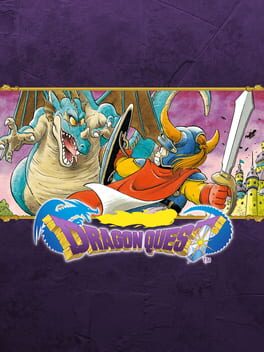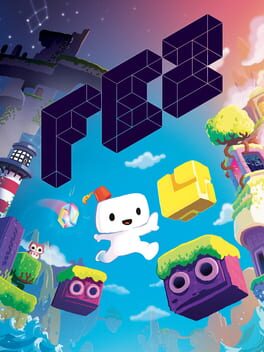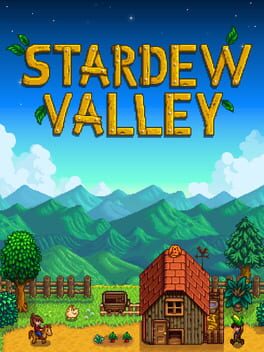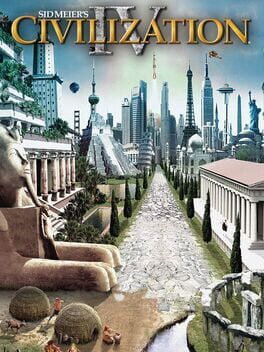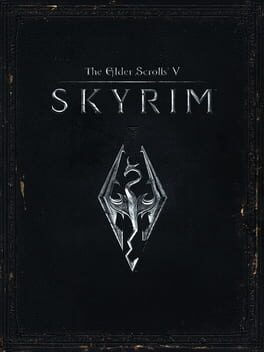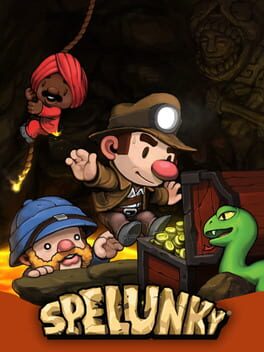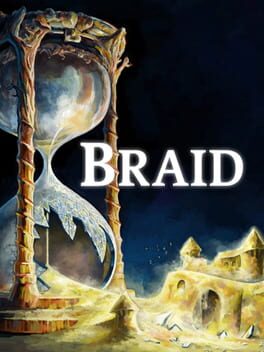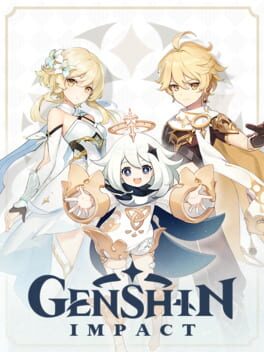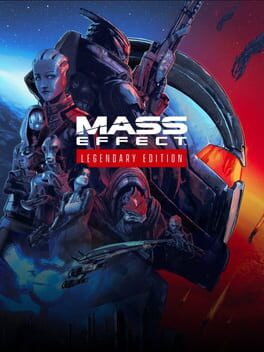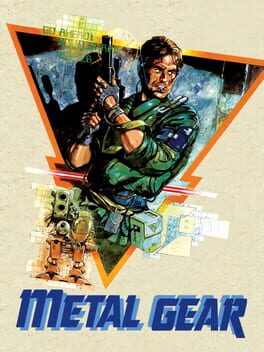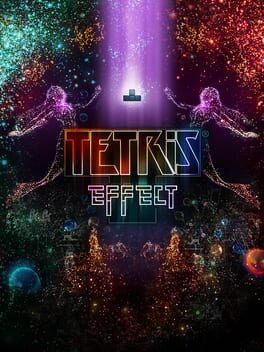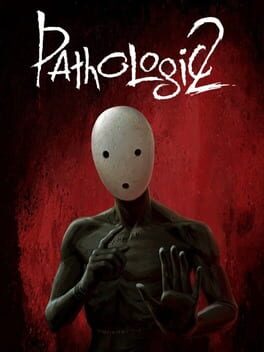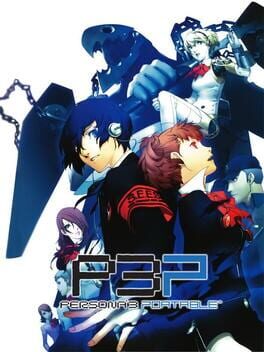The Major Arcana of Gaming
There was an episode of Into The Aether's Any% in which they tried to assign games to every card of the Major Arcana but ran out of time. As the owner of 14 decks (though I'm more of a Lenormand user), I shall take on this challenge.
23 Games
0 - The Fool - Dragon Quest (series)
(The Fool is infinite potential and is at the start of a long journey. DQ as a series is a long-running, is a bedrock of the medium, and has done its own takes on everything from pokemon to minecraft, and it either did it first or did it better.)
(The Fool is infinite potential and is at the start of a long journey. DQ as a series is a long-running, is a bedrock of the medium, and has done its own takes on everything from pokemon to minecraft, and it either did it first or did it better.)
1 - The Magician - Metroid and Zelda
(The Magician is the first person the Fool meets and is a guide for the journey. The Magician is associated strongly with teaching and with tools. Metroid and Zelda both are foundational works and they revolve around gating player process through tools.)
(The Magician is the first person the Fool meets and is a guide for the journey. The Magician is associated strongly with teaching and with tools. Metroid and Zelda both are foundational works and they revolve around gating player process through tools.)
2 - The High Priestess - FEZ
(The High Priestess is another guide, but sits before the veil, keeping guard over arcane, hidden knowledge and deciding when to share the secrets of the universe. FEZ is one of the Big Games that hide under layers and layers of mystery.)
(The High Priestess is another guide, but sits before the veil, keeping guard over arcane, hidden knowledge and deciding when to share the secrets of the universe. FEZ is one of the Big Games that hide under layers and layers of mystery.)
3 - The Empress - Stardew Valley
(The Empress presides over growth and cultivation of her kingdom, sitting in a field with wheat in hand. SDV is chiefly about taking care of your own domain, the farm and the wider village.)
(The Empress presides over growth and cultivation of her kingdom, sitting in a field with wheat in hand. SDV is chiefly about taking care of your own domain, the farm and the wider village.)
4 - The Emperor - Civilization
(The Emperor is the firm hand of government and can be an important navigator in chaos but also is angered by lack of obedience and losing control. Civ is all about steering every aspect of a nation and protecting it viciously.)
(The Emperor is the firm hand of government and can be an important navigator in chaos but also is angered by lack of obedience and losing control. Civ is all about steering every aspect of a nation and protecting it viciously.)
5 - The Hierophant - Pokemon
(The Hierophant is a cultural, societal leader that gains power from people who believe similarly but subsequently is very set in their ways. Pokemon is a huge phenomenon that unites people of all ages, but also struggles heavily with innovation and progress.)
(The Hierophant is a cultural, societal leader that gains power from people who believe similarly but subsequently is very set in their ways. Pokemon is a huge phenomenon that unites people of all ages, but also struggles heavily with innovation and progress.)
6 - The Lovers - Journey
(The Lovers aren't necessarily smoochy-smoochy, but represent a Decision, joining hands with another person and striding into the future together. It's Journey. If you know, you know.)
(The Lovers aren't necessarily smoochy-smoochy, but represent a Decision, joining hands with another person and striding into the future together. It's Journey. If you know, you know.)
7 - The Chariot - Bethesda's Catalog
(The Chariot is a tumultuous, potent card. They hold onto the reins of powerful beasts and drive forward, blazing a new path. But if they lose grip, everything goes to hell. Bethesda's works tend to have this incredible ambition to them, and when they hit, they HIT, but when they miss, it's dramatic.)
(The Chariot is a tumultuous, potent card. They hold onto the reins of powerful beasts and drive forward, blazing a new path. But if they lose grip, everything goes to hell. Bethesda's works tend to have this incredible ambition to them, and when they hit, they HIT, but when they miss, it's dramatic.)
8 - Justice - Dark Souls
(Justice is the system and its enforcement of its rules, whether they feel fair or arbitrary. I feel DS fits it well-- it relentlessly follows its own rules and is firm in them, which can either draw players in or seem cruel and unwelcoming.)
(Justice is the system and its enforcement of its rules, whether they feel fair or arbitrary. I feel DS fits it well-- it relentlessly follows its own rules and is firm in them, which can either draw players in or seem cruel and unwelcoming.)
9 - The Hermit - Immortality
(The Hermit is a wise person who gained specialized knowledge but through great personal sacrifice. They find it difficult to share their knowledge because they essentially traded that ability to communicate easily for the wisdom. Immortality has some deeply complicated concepts to communicate, but its methods and the basic mechanics it uses are to some people impossible to understand.)
(The Hermit is a wise person who gained specialized knowledge but through great personal sacrifice. They find it difficult to share their knowledge because they essentially traded that ability to communicate easily for the wisdom. Immortality has some deeply complicated concepts to communicate, but its methods and the basic mechanics it uses are to some people impossible to understand.)
10 - (Wheel of) Fortune - Spelunky
(Fortune is the card of pure luck and the whims of fate and how you survive being caught in its spokes. Spelunky is a pure Rogue-like as opposed to a Rogue-lite and there is no knowing what the procgen will give you.)
(Fortune is the card of pure luck and the whims of fate and how you survive being caught in its spokes. Spelunky is a pure Rogue-like as opposed to a Rogue-lite and there is no knowing what the procgen will give you.)
11 - Strength - Undertale
(Strength is specifically about emotional control and fortitude. It's not about slaying the lion, but holding it, keeping it from lashing out. Undertale is a game that asks the player to endure emotional struggles both against the mechanics and against their own inclinations.)
(Strength is specifically about emotional control and fortitude. It's not about slaying the lion, but holding it, keeping it from lashing out. Undertale is a game that asks the player to endure emotional struggles both against the mechanics and against their own inclinations.)
12 - The Hanged Man - Signalis
(OH BOY ITS MY FAVE CARD. The thing about the Hanged Man is that it's a test, a gamble, a deal. The Hanged Man is not hung from the neck, this is not an execution, they are inverted. They choose to be inverted in the hopes of gaining some Insight into the universe, but in doing so risk madness or obsession or doom. Signalis is both a game about a protagonist going through this and also a game that will put the player through this if they aren't careful.)
(Fun Fact despite this being my favorite card, Signalis is not my favorite game.)
(OH BOY ITS MY FAVE CARD. The thing about the Hanged Man is that it's a test, a gamble, a deal. The Hanged Man is not hung from the neck, this is not an execution, they are inverted. They choose to be inverted in the hopes of gaining some Insight into the universe, but in doing so risk madness or obsession or doom. Signalis is both a game about a protagonist going through this and also a game that will put the player through this if they aren't careful.)
(Fun Fact despite this being my favorite card, Signalis is not my favorite game.)
13 - The Nameless Arcana - Braid
(I'm not even personally a fan of Braid, but I believe it is one of the handful of Original Indie Games. The very existence and popularity of Braid and its contemporaries showed that games outside the big studios could hit big. Braid (or Cave Story for the PC crowd) altered the landscape.
(I'm not even personally a fan of Braid, but I believe it is one of the handful of Original Indie Games. The very existence and popularity of Braid and its contemporaries showed that games outside the big studios could hit big. Braid (or Cave Story for the PC crowd) altered the landscape.
14 - Temperance - Yakuza
(Temperance is the melding of disparate elements that should not go together into something grand and new, and maintaining that balance. Yakuza manages to be genuine and profound not in spite of its strange mixture of tones and mechanics but because of them.)
(Temperance is the melding of disparate elements that should not go together into something grand and new, and maintaining that balance. Yakuza manages to be genuine and profound not in spite of its strange mixture of tones and mechanics but because of them.)
15 - The Devil - Genshin Impact
(I don't feel the need to elaborate on this one.)
(I don't feel the need to elaborate on this one.)
16 - The Tower - Shenmue
(The Tower is total upheaval and where it all comes crashing down, where ambition crumbles and brings an institution down with it. Shenmue is not solely to blame for the failure of the Dreamcast and Sega's exit from the console arena, but it contributed to it and is emblematic of that seachange.)
(The Tower is total upheaval and where it all comes crashing down, where ambition crumbles and brings an institution down with it. Shenmue is not solely to blame for the failure of the Dreamcast and Sega's exit from the console arena, but it contributed to it and is emblematic of that seachange.)
17 - The Star - Mass Effect
(The Star is a beacon in the darkness, a distant light that indicates not so much a goal, but that the journey will continue. Mass Effect is a landmark title that maybe didn't execute on half the things it tried, strangled by its own scope, but it still showed what games could do, broadening the possibility space. It is hope for greater experiences in the artform.)
(The Star is a beacon in the darkness, a distant light that indicates not so much a goal, but that the journey will continue. Mass Effect is a landmark title that maybe didn't execute on half the things it tried, strangled by its own scope, but it still showed what games could do, broadening the possibility space. It is hope for greater experiences in the artform.)
18 - The Moon - Metal Gear
(The Moon illuminates the path through the darkness, but creates illusions in the reflections, demanding the querent move forward with care or they will go astray, go mad. Is Metal Gear really deep? Is it the closest triple-A games get to arthouse? Does it have meaning? Or is it a mess? Is it too Problematique to justify it's big ideas? Is it all just really, really stupid? Or is it genius?)
(The Moon illuminates the path through the darkness, but creates illusions in the reflections, demanding the querent move forward with care or they will go astray, go mad. Is Metal Gear really deep? Is it the closest triple-A games get to arthouse? Does it have meaning? Or is it a mess? Is it too Problematique to justify it's big ideas? Is it all just really, really stupid? Or is it genius?)
19 - The Sun - Tetris Effect
(The Sun comes at the end of a long, arduous journey. It is the sigh of relief, the tears of release, the light to finally see how far you've come. Tetris Effect is the latest iteration of one of the oldest formulas ever, and it's brilliant and celebratory and invites everyone to take part in its joy.)
(The Sun comes at the end of a long, arduous journey. It is the sigh of relief, the tears of release, the light to finally see how far you've come. Tetris Effect is the latest iteration of one of the oldest formulas ever, and it's brilliant and celebratory and invites everyone to take part in its joy.)
20 - Judgement - Pathologic
(Judgement is all-seeing and all-knowing, the final tally and the reckoning. So is Pathologic. Few experiences demand so much from the player, and few games are so brutally honest in answering the player's decisions. In Pathologic, you will get what you deserve.)
(Judgement is all-seeing and all-knowing, the final tally and the reckoning. So is Pathologic. Few experiences demand so much from the player, and few games are so brutally honest in answering the player's decisions. In Pathologic, you will get what you deserve.)
21 - The World - The Outer Wilds
(The beginning is the end is the beginning. Completion and totality and holistic understanding of Everything. It's gotta be Outer Wilds.)
(The beginning is the end is the beginning. Completion and totality and holistic understanding of Everything. It's gotta be Outer Wilds.)
"What the fuck, you did a list of the Majors and no Persona games?"
Yeah, sorry! I considered Persona 2 pretty closely but then didn't think it was the best example. But for y'all, here's which Arcana I think best suits each game:
Persona 2 - The Hanged Man (SOME MYSTERIES ARE BETTER LEFT UNSOLVED, DAMN)
Persona 3 Portable - The Hermit (P3P Girl Route is the best version of P3, but due to the mechanical and presentation differences, few people will ever gain that deep knowledge)
Persona 4 Golden - The Chariot (when P4G is good, it's really good, and it pushed the series into the mainstream. unfortunately, the longer the game goes on, the more off the rails it goes. after the Murderer is discovered and handled, it just... keeps going and the wheels come off in a really disappointing way. it still pushed the series forward)
Personal 5 Royal - The Devil (table-setting: i think the Third Semester of P5R saves it from being a genuinely mediocre game. P5R is obsessed with excess. It is loud and brash and even the UI won't sit fucking still and is kind of an accessibility nightmare. It's pacing is truly dogshit, there are too many party members resulting in many of them being flattened of their nuance and characteristics, the Kaneshiro dungeon could be cut from the game to reduce the obnoxiously long playtime to something more reasonable, and the way the plot goes from "specific structures of society are ruining lives" to "sheeple be on their iphones" a massive narrative mistake.
AND YET. If you can slog through 70 to 90 hours of mediocre game, you can play the final semester, which is lowkey a masterpiece that recontextualizes and interrogates the rest of the campaign. P5R needed an editor more than Hideo fucking Kojima ever has.)
Yeah, sorry! I considered Persona 2 pretty closely but then didn't think it was the best example. But for y'all, here's which Arcana I think best suits each game:
Persona 2 - The Hanged Man (SOME MYSTERIES ARE BETTER LEFT UNSOLVED, DAMN)
Persona 3 Portable - The Hermit (P3P Girl Route is the best version of P3, but due to the mechanical and presentation differences, few people will ever gain that deep knowledge)
Persona 4 Golden - The Chariot (when P4G is good, it's really good, and it pushed the series into the mainstream. unfortunately, the longer the game goes on, the more off the rails it goes. after the Murderer is discovered and handled, it just... keeps going and the wheels come off in a really disappointing way. it still pushed the series forward)
Personal 5 Royal - The Devil (table-setting: i think the Third Semester of P5R saves it from being a genuinely mediocre game. P5R is obsessed with excess. It is loud and brash and even the UI won't sit fucking still and is kind of an accessibility nightmare. It's pacing is truly dogshit, there are too many party members resulting in many of them being flattened of their nuance and characteristics, the Kaneshiro dungeon could be cut from the game to reduce the obnoxiously long playtime to something more reasonable, and the way the plot goes from "specific structures of society are ruining lives" to "sheeple be on their iphones" a massive narrative mistake.
AND YET. If you can slog through 70 to 90 hours of mediocre game, you can play the final semester, which is lowkey a masterpiece that recontextualizes and interrogates the rest of the campaign. P5R needed an editor more than Hideo fucking Kojima ever has.)
